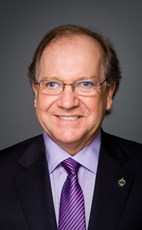Mr. Speaker, had the hon. member taken the time to read the bill, he could have explained to the mayor in question that the proposed legislation itself would have no impact whatsoever on non-first nations governments. As such, Bill S-8 and subsequent regulations would not force municipalities to provide drinking water services to first nations, nor delegate powers or costs to municipalities. Furthermore, Bill S-8 would not affect municipalities' abilities to choose to pursue or not municipal service agreements with first nations.

